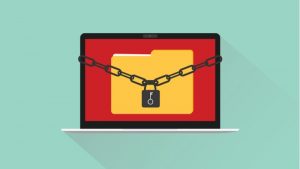A new report from Sophos found that ransomware attacks against the education sector hit an all-time high in 2020.
The Department of Justice (DoJ) and Department of Homeland Security (DHS) have launched a one-stop shop at StopRansomware.gov for individuals, businesses, and organizations to help combat the increasing trend of ransomware attacks, the DoJ announced today.
White House national security staff took the Biden administration’s strategic thinking on ransomware prevention to the local government mayors this week, as administration advisors continued to work through a long list of policy items aimed at curbing the attacks and making them less profitable.
A new report has found that ransomware is the top cyber threat facing higher education amid the shift to distance and hybrid learning.
The state of Louisiana was hit with a ransomware attack on Nov. 18, making it the second attack on the state in the last six months. Louisiana Gov. John Bel Edwards, a Democrat, said on Twitter, “There is no anticipated data loss and the state did not pay a ransom.”
Following a successful ransomware attack against the city earlier this year, Baltimore, Md. has purchased $20 million in cybersecurity insurance.
Rep. John Katko, R-N.Y., introduced the State and Local Government Cybersecurity Improvement Act on Aug. 30 to help state and local governments combat cyberattacks. The legislation comes in the wake of increasing ransomware attacks targeting state and local governments, including Katko’s own state.
About two-thirds of 2019 ransomware attacks in America have targeted state and local governments, according to an Aug. 28 report published by Barracuda Networks, a cybersecurity group.
The city of Albany, N.Y., confirmed on March 30 that it was hit by a ransomware attack that affected municipal government computers.
Jackson County, Ga., paid cybercriminals $400,000 to remove ransomware that infected its IT systems. The ransomware, known as Ryuk Ransomware, hit the county on March 1 and impacted multiple county agencies, including the Sheriff’s Office.







